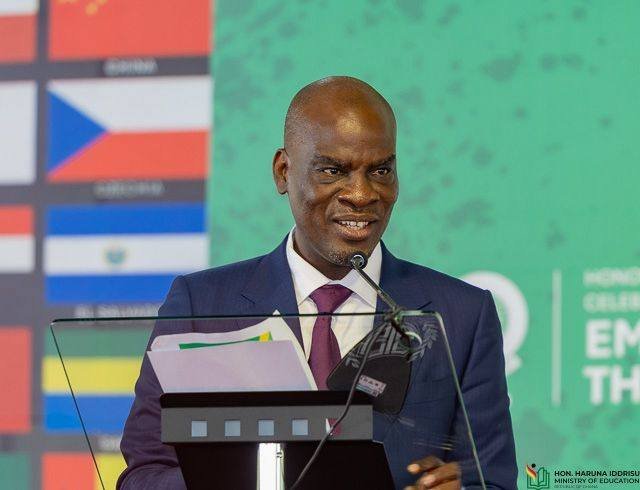The Minister of Education, Hon. Haruna Iddrisu, has proposed a significant policy shift aimed at securing the long-term sustainability of Ghana’s No Fees Stress Policy. In a recent speech at a stakeholder engagement event organized by the Students Loan Trust Fund, the Minister called for 2.5% of Ghana’s oil revenue to be dedicated specifically to scholarships and bursaries. This move is intended to support the government’s effort to make tertiary education more accessible to all Ghanaian students, without the burden of tuition fees.
The No Fees Stress Policy was introduced as a flagship initiative to reduce the financial barriers preventing students from accessing higher education. By eliminating tuition fees for newly admitted students, the government aims to increase enrollment and improve educational outcomes. However, with the growing demand for financial support and the increasing number of students seeking higher education, there are concerns about the policy’s long-term viability, especially given the strain on public finances.
Ghana Education Trust Fund (GETFund) has traditionally been used to finance educational infrastructure, scholarships, and bursaries. While GETFund has played a crucial role in supporting education in Ghana, the Minister emphasized that it is not a sustainable source of funding for the ambitious No Fees Stress Policy.
“The GETFund cannot bear the weight of this policy alone. With the growing demand for financial aid, we need a more robust and dedicated funding mechanism to ensure the continuity of the No Fees Stress Policy,” the Minister said
The proposal to allocate 2.5% of Ghana’s oil revenue to scholarships and bursaries aims to alleviate the pressure on GETFund while providing a more stable and predictable funding stream.
In addition to the funding proposal, Iddrisu recommended the creation of a Scholarships and Bursaries Authority, which is an independent body tasked with overseeing the allocation and management of educational scholarships and bursaries. This new authority would be responsible for ensuring that financial aid is distributed fairly and efficiently, with transparency and accountability at the forefront of its operations.
The establishment of such an authority according to the Minister, would not only streamline the allocation process but also provide an effective oversight mechanism to prevent misuse of funds and ensure that resources are directed to those who need them most.
The call for a 2.5% allocation of oil revenue is not just a proposal to meet immediate financial needs but also an effort to create a sustainable funding model for the future of Ghana’s education system.







